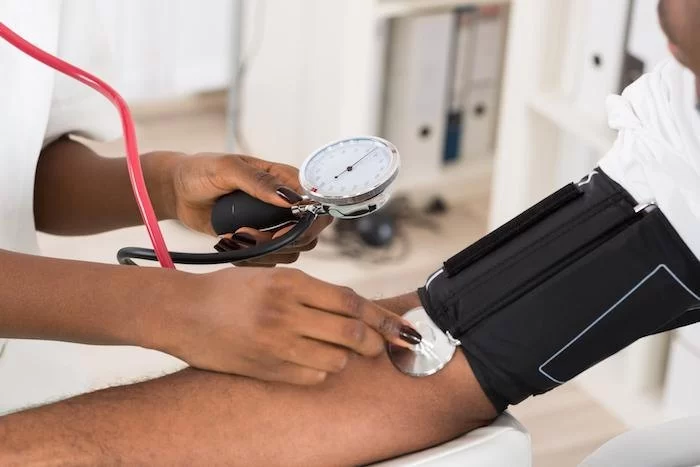- how-to-keep-blood-pressure-normal-during-stressful-events — effective-tips
- understanding-the-effects-of-stress-on-blood-pressure — scientific-insights
- strategies-to-control-blood-pressure-during-stress — practical-approaches
- lifestyle-changes-to-reduce-blood-pressure-under-stress — habits-for-long-term-benefits
- when-to-seek-professional-help-for-high-blood-pressure — expert-advice
How to Keep Your Blood Pressure Normal During Stressful Events
We all face stressful situations, whether it’s a tight deadline at work, a personal conflict, or an unexpected emergency. However, these moments of stress can have a significant impact on our blood pressure. If you’re one of the millions of people who struggle to keep their blood pressure in check during stressful times, you’re not alone. Fortunately, there are proven strategies and techniques that can help you stay calm and manage your blood pressure effectively.
In this article, we’ll explore the relationship between stress and blood pressure, and provide actionable tips to help you keep your blood pressure normal during stressful events. By incorporating these strategies into your routine, you can reduce the negative effects of stress on your body and overall health.
To learn more about heart health and manage stress effectively, visit HeartCare Hub, where we offer expert advice and top-rated products to support your cardiovascular wellness.

Understanding the Effects of Stress on Blood Pressure
Before diving into the strategies, it’s essential to understand how stress affects your blood pressure. When you’re stressed, your body releases hormones like adrenaline and cortisol that trigger the “fight-or-flight” response. These hormones cause your heart rate to increase and blood vessels to constrict, which temporarily raises your blood pressure.
While a short-term spike in blood pressure isn’t usually harmful for most people, frequent or chronic stress can contribute to long-term health problems, such as hypertension (high blood pressure), heart disease, and stroke. If you already have high blood pressure, stress can make it even more challenging to manage and control your condition.
Understanding these effects is crucial because it allows you to take proactive steps to prevent stress from wreaking havoc on your heart health. Now that we know how stress impacts your body, let’s look at some practical strategies for keeping your blood pressure in check during stressful times.
Nuvance Health Cardiac Testing at Poughkeepsie
heart center poughkeepsie ny
1 Columbia St #200, Poughkeepsie, NY 12601, USA

Strategies to Control Blood Pressure During Stress
There are several effective techniques that you can use to manage your blood pressure when stress strikes. By integrating these methods into your daily life, you’ll be better equipped to handle stress without it affecting your health.
1. Practice Deep Breathing Techniques
Deep breathing is one of the quickest and most effective ways to reduce stress and lower your blood pressure. When you focus on slow, deep breaths, you activate the body’s relaxation response, which helps counteract the effects of the stress response.
Try the 4-7-8 breathing technique: inhale for 4 seconds, hold your breath for 7 seconds, and exhale slowly for 8 seconds. Repeat this process for a few minutes, and you should begin to feel calmer and more in control. This simple practice can help lower blood pressure and improve overall well-being.
2. Engage in Physical Activity
Exercise is another great way to combat stress and keep your blood pressure normal. Physical activity helps release endorphins, the body’s natural mood boosters, and can lower your blood pressure over time.
Even a short walk, stretching, or yoga session can be incredibly effective in reducing stress levels and stabilizing blood pressure. The key is to stay consistent with regular exercise. Aim for at least 30 minutes of moderate activity on most days of the week.
3. Try Mindfulness and Meditation
Mindfulness and meditation are powerful tools for managing stress and promoting mental clarity. By taking a few minutes each day to focus on the present moment and clear your mind, you can reduce feelings of anxiety and lower your blood pressure.
There are various mindfulness techniques, such as guided meditation, body scanning, and progressive muscle relaxation. Apps like Headspace or Calm offer easy-to-follow meditation sessions, which can be helpful during stressful events.
4. Avoid Caffeine and Sugar
While it’s tempting to grab a cup of coffee or a sugary snack when stressed, both caffeine and sugar can exacerbate the body’s stress response and increase your blood pressure. Caffeine is a stimulant that can temporarily raise heart rate and blood pressure, while sugar contributes to inflammation and can affect your blood sugar levels.
To help keep your blood pressure stable, avoid excessive caffeine intake, especially during stressful situations. Opt for herbal teas or water to stay hydrated and calm.
5. Stay Connected with Loved Ones
Social support is vital when managing stress. Spending time with friends, family, or even a supportive colleague can help you feel more relaxed and grounded during stressful events. Talking things out or sharing your feelings can help reduce anxiety and lower your blood pressure.
Lifestyle Changes to Reduce Blood Pressure Under Stress
In addition to the strategies mentioned above, there are several lifestyle changes that can help you manage your blood pressure in the long term. By making these changes, you’ll not only improve your stress response but also reduce your risk of developing chronic hypertension.
1. Maintain a Healthy Diet
A healthy diet is essential for maintaining normal blood pressure, especially during stressful times. Focus on eating whole foods, such as fruits, vegetables, lean proteins, and whole grains. Foods rich in potassium, such as bananas and sweet potatoes, can help lower blood pressure and balance out the negative effects of sodium.
Avoid excessive salt intake, as high sodium levels can cause water retention and increase blood pressure. Instead, flavor your meals with herbs and spices to add taste without the added sodium.
2. Get Enough Sleep
Stress and lack of sleep go hand in hand. Poor sleep quality can lead to higher blood pressure and make it harder to cope with stressful situations. Aim for 7 to 9 hours of sleep each night, and practice good sleep hygiene by sticking to a regular sleep schedule, limiting screen time before bed, and creating a calming bedtime routine.
3. Limit Alcohol Consumption
Excessive alcohol intake can raise blood pressure and impair your body’s ability to manage stress. If you drink, do so in moderation. The American Heart Association recommends no more than one drink per day for women and two drinks per day for men.
When to Seek Professional Help for High Blood Pressure
While the strategies above can be effective in managing your blood pressure during stressful times, there may be occasions when professional help is needed. If you experience persistent high blood pressure, even after trying stress management techniques, it’s important to consult with your doctor.
A healthcare professional can assess your condition, recommend treatments, and help you manage your blood pressure effectively. If you are diagnosed with hypertension, your doctor may recommend medication or other interventions to help you stay healthy.
To stay on top of your heart health and find products that can support your wellness journey, visit HeartCare Hub for expert advice and a range of health solutions designed to keep you feeling your best.






















Nuvance Health Cardiac Testing at Poughkeepsie
heart center poughkeepsie
1 Columbia St #200, Poughkeepsie, NY 12601, USA